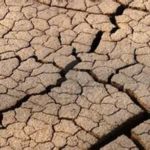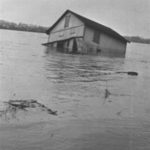The Intergovernmental Panel on Climate Change (IPCC) in its report said, man-made global-warming gases are already affecting some types of extreme weather.
Climate change amplifies risks from natural disasters like drought, floods, storms and rising seas threatening all countries but small island states, poor nations and arid regions in particular, UN experts warned.
Despite gaps in knowledge, weather events once deemed a freak are likely to become more frequent or more vicious, inflicting a potentially high toll in deaths, economic damage and misery, it said.
IPCC chairman Rajendra Pachauri urged countries to prepare more for climate-related disasters.
A summary of the report and its full document was published ahead of a worldwide campaign to advise governments, policymakers and grassroots groups.
The report made these points:
***Since the 1950s, record-breaking daily temperatures and heatwaves have become more frequent or lasted longer, according to strong evidence. There is a 90-100 percent probability that this will continue through the 21st century.
***Extreme rainstorms have intensified over past decades and are likely to become more frequent in this century, although with big differences between regions.
***Southern Europe and West Africa have already experienced bigger or longer droughts. This century, central Europe, central North America, central America and Mexico, northeast Brazil and southern Africa could follow suit.
*** Whether hurricanes or typhoons have changed in intensity, frequency and duration over the past 40 years is hard to gauge. But warmer seas suggests these storms will pack a higher wind speed, yet may also become less frequent.
The panel stressed that it had exhaustively collected information, checked it and consulted with experts working outside the forum.
The report was drawn up by 220 scientists and economists from 62 countries, who pored over thousands of published studies. Their draft was then submitted to external review by experts and governments, drawing nearly 19,000 comments in three rounds of consultation.
The IPCC was criticized for closed mentalities and lacking transparency after several mistakes were found in its 2007 Fourth Assessment Report.
Climate skeptics seized on the errors. They accused the panel of distorting data in order, in their view, to invent a problem.
For storms, for instance, longer-term data is needed to say whether they have already become more frequent or intense, said climate physicist Thomas Stocker. Another variable is how effective countries will be in curbing the carbon gases that cause the problem, he said.
The report, Managing the Risks of Extreme Events and Disasters to Advance Climate Change Adaptation, acknowledges shades of uncertainty.

